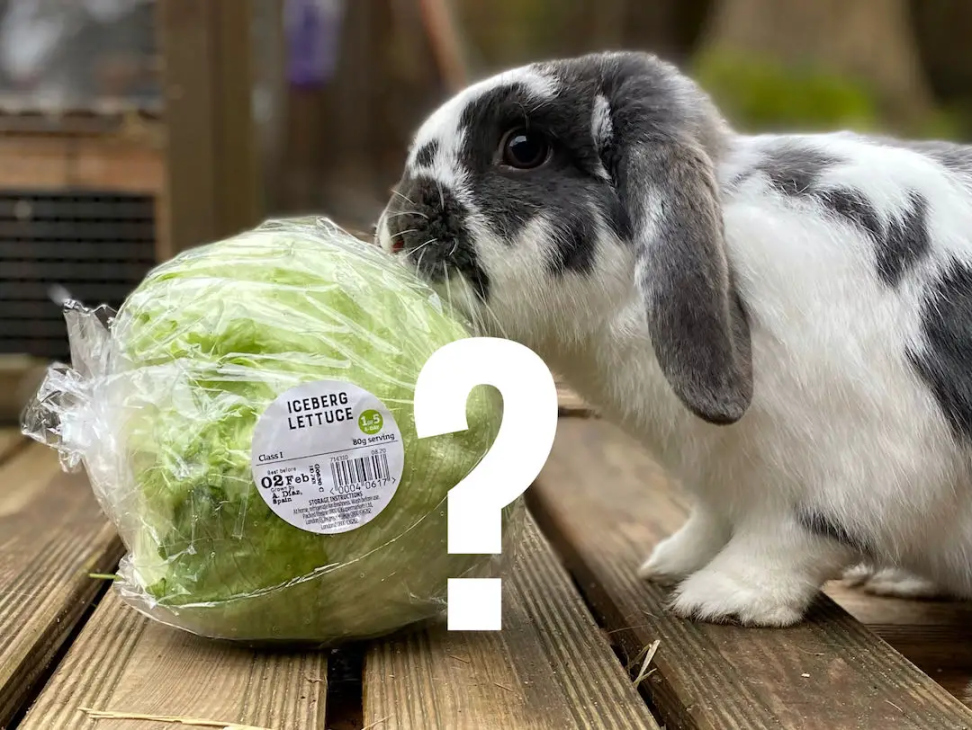Can Rabbits Have Iceberg Lettuce?
Rabbits are adorable creatures that make popular pets. As responsible rabbit owners, it is crucial to provide them with a well-balanced diet to ensure their overall health and well-being. One common question that often arises is whether rabbits can have iceberg lettuce. In this article, we will explore the suitability of iceberg lettuce for rabbits and provide valuable insights into their dietary needs.

The Nutritional Value of Iceberg Lettuce
Iceberg lettuce is a popular choice for human salads due to its crispy texture and mild taste. However, when it comes to the nutritional needs of rabbits, iceberg lettuce falls short. Let’s take a closer look at the nutritional value of iceberg lettuce:
- Limited Nutritional Benefits: Iceberg lettuce contains a high water content but lacks significant nutrients that rabbits require for optimal health, including essential vitamins and minerals.
- Low Fiber Content: Fiber is crucial for a rabbit’s digestive system, helping to maintain healthy gut motility and prevent gastrointestinal issues. Unfortunately, iceberg lettuce has a low fiber content, making it a poor choice for rabbits.
- Low Vitamin and Mineral Content: Rabbits need a variety of vitamins and minerals to thrive. Iceberg lettuce, however, has minimal nutritional value in terms of these essential nutrients, leaving rabbits at risk of deficiencies.
Potential Health Risks for Rabbits
While iceberg lettuce may not offer much nutritional benefit for rabbits, it can also pose potential health risks. Here are some risks associated with feeding iceberg lettuce to rabbits:
- Diarrhea: The high water content in iceberg lettuce can lead to diarrhea in rabbits. This can cause dehydration and disrupt their digestive system.
- Bloating and Gastrointestinal Issues: Due to the lack of fiber, rabbits may experience bloating and gastrointestinal issues when consuming iceberg lettuce. This can result in discomfort and potential health complications.
- Nutritional Imbalances: Feeding iceberg lettuce as a staple food can lead to nutritional imbalances and deficiencies in rabbits. It is essential to provide them with a diverse diet that includes a range of nutrient-rich vegetables.
Suitable Alternatives to Iceberg Lettuce
Fortunately, there are numerous alternatives to iceberg lettuce that can provide rabbits with the necessary nutrients and help maintain their overall health. Here are some suitable alternatives:
- Leafy Greens: Dark leafy greens such as romaine lettuce, spinach, kale, and Swiss chard are excellent choices for rabbits. They offer a higher fiber and nutrient content compared to iceberg lettuce.
- Herbs: Fresh herbs like parsley, cilantro, and basil can be included in a rabbit’s diet as they provide additional flavor and nutrients.
- Vegetables: Carrots, bell peppers, broccoli, and Brussels sprouts are examples of vegetables that rabbits can enjoy in moderation.
Frequently Asked Questions (FAQs)
1. Can rabbits eat iceberg lettuce occasionally?
It is best to avoid feeding rabbits iceberg lettuce, even occasionally, due to its low nutritional value and potential health risks.
2. Why is iceberg lettuce bad for rabbits?
Iceberg lettuce lacks significant nutrients, including fiber, vitamins, and minerals, that rabbits need for a balanced diet. It can also lead to diarrhea and gastrointestinal issues.
3. Can I feed my rabbit other varieties of lettuce?
While some lettuce varieties like romaine lettuce are healthier options for rabbits, they should still be fed in moderation as part of a diverse diet.
4. What are the signs of nutritional imbalances in rabbits?
Signs of nutritional imbalances in rabbits can include weight loss, dull coat, reduced appetite, and digestive issues. If you notice any of these signs, consult a veterinarian.
In conclusion, while iceberg lettuce may be a popular choice for human consumption, it is not suitable for rabbits due to its limited nutritional value and potential health risks. It is crucial to provide rabbits with a well-balanced diet that includes a variety of vegetables, leafy greens, and herbs to meet their nutritional needs. Always consult with a veterinarian for specific dietary recommendations to ensure the health and happiness of your beloved pet rabbit.
Related Articles…
Copyright Notice:
The images displayed here are sourced from the internet, with copyrights held by respective owners. For removal of any copyrighted image, please email us.